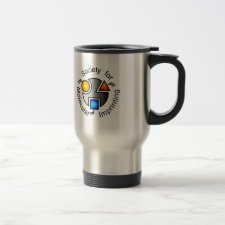
Authors: Yang H, Liu LJ, Zhu YJ, Zhu XY, Pan DD
Article Title: Determination of Trace Tributyltin in Seafood by Molecularly Imprinted Polymer and High Performance Liquid Chromatography-inductively Coupled Plasma Mass Spectrometry.
Publication date: 2017
Journal: Modern Food Science and Technology
Volume: 33
Issue: (2)
Page numbers: 243-249.
DOI: 10.13982/j.mfst.1673-9078.2017.2.037
Alternative URL: http://www.xdspkj.cn/ch/reader/view_abstract.aspx?file_no=20170237&flag=1
Abstract: With methacrylate as functional monomer, tributyltin (TBT) as template molecule, ethylene glycol dimethyl ester as crosslinking agent, and acetonitrile as porogen, a molecularly imprinted polymer (MIP) with specific recognition towards TBT was successfully prepared using molecular imprinting technology combined with high performance liquid chromatography-inductively coupled plasma-mass spectrometry (HPLC-ICP-MS). Experiments on selective recognition, adsorption kinetics, and regeneration performance showed that the synthesized MIPS had a good adsorption capacity and high selective recognition ability for TBT. Additionally, MIPs were used as solid phase extraction sorbents to separate and enrich TBT, and the TBT in seawater and seafood was detected using HPLC-ICP-MS. The results indicated that, compared with traditional MIPs as an adsorbent for enrichment and separation, the limits of detection (LODs) for seawater, mussels, and large yellow croaker samples were 0.06 μg/L, 4.0 ng/g, and 5.0 ng/g, respectively, the recoveries were 61.5%~84.5%, 76.2%~93.9%, and 74.2%~93.3%, respectively, and the linear ranges were 0.1 μg/L~30 μg/L, 5 ng/g~50 ng/g, and 5 ng/g~500 ng/g, respectively. This study provides a method for the detection of organic tin and other organometallic compounds in seafood.
Template and target information: tributyltin, TBT
Author keywords: molecularly imprinted polymer, Tributyltin, high performance liquid chromatography-inductively coupled plasma-mass spectrometry, Seafood


Join the Society for Molecular Imprinting

New items RSS feed
Sign-up for e-mail updates:
Choose between receiving an occasional newsletter or more frequent e-mail alerts.
Click here to go to the sign-up page.
Is your name elemental or peptidic? Enter your name and find out by clicking either of the buttons below!
Other products you may like:
 MIPdatabase
MIPdatabase









